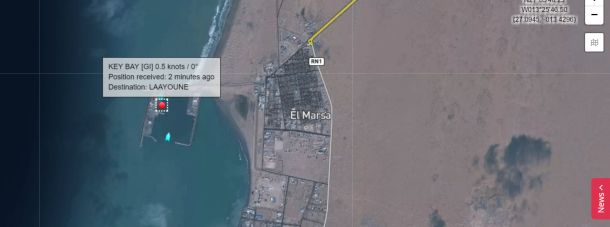
The European Commission said yesterday that products originating from Western Sahara must be labelled as from Western Sahara, not Morocco.
"All imported products, including those originating from the Western Sahara, need to comply with the relevant legislation, including the requirement to provide accurate and not misleading information on the country of origin or provenance of those products, which in such case must thus be “Western Sahara”. That is the answer EU Commissioner for Agriculture Janusz Wojciechowski gave yesterday, 5 February 2020, to a question in the European Parliament.
Author of the parliamentary question, MEP Heidi Hautala (Finland, Greens/EFA), had enquired about the labeling of origin on products coming from Western Sahara and whether Morocco's conformity checks on these products are in line with relevant EU Regulations - particularly in view of rulings by the EU Court of Justice establishing that Morocco has no sovereignty or jurisdiction over Western Sahara.
"While this can be viewed as a least a tangible recognition by the EU institutions that Western Sahara is not part of Morocco, it is still a long way from abiding by international law or indeed the rulings of its own Court of Justice, which call for the clear exclusion of the territory from all the EU's relations with Morocco. This is merely labelling the occupation - a cosmetic touch-up of ultimately still being in cahoots with an occupying regime", says Sara Eyckmans from WSRW.
In December 2016, the EU Court of Justice ruled that the EU-Morocco Trade Agreement could not be applied to Western Sahara, given that the territory is "distinct and separate" from Morocco. Western Sahara, the Court argued, is to be regarded as a third territory to the EU's trade relations with Morocco. As such, it can only be lawfully affected by those relations with the explicit consent of the people of the territory.
In order to appease Morocco - which froze its relations with the EU after the judgment - the EU quickly moved to negotiate an amendment to the existing trade deal to explicitely include Western Sahara with ... Morocco. The people of Western Sahara were not involved in any stages of the negotiation process. And in an attempt to create the illusion that consent had been obtained, the EU External Action Service proceeded to hold a consultation exercise in which only Moroccan entities participated, after the deal had already been initialed. Claims by the EEAS that the UN-recognised representation of the people of Western Sahara, the Polisario Front, had been consulted, were quickly proven to be a flat out lie. In fact, 83% of the groups - including WSRW - that the EU Commission claimed had participated in a 'consultation' regarding Western Sahara trade, had either never been asked to take part - or had not taken part - in any such process.
In spite of the clear opposition of the people of Western Sahara - expressed both through Polisario and through Saharawi civil society groups - to having the EU-Morocco trade deal apply to the part of their land that is under Moroccan occupation, the deal was approved by both the European Parliament and the EU Member States.
Polisario initiated legal proceedings against the amended trade deal with the EU Court of Justice (case T-279/19 Front Polisario v Council). A verdict is expected later this year.
Commission advise on Western Sahara trade to EU customs: ask Morocco
In case of reasonable doubt on the true origin of the product - Morocco or Western Sahara - EU customs should "request verification from the competent Moroccan authorities", says the EU Commission.
EU appears clueless on import levels from Western Sahara
The EU Commission puts the trade flow from Western Sahara into the Union at "just €7000" for the entire year of 2016. "Beggars belief", WSRW states.
First ship to challenge EU Court ruling on occupied Western Sahara
EU Parliament to hold Western Sahara debates at committee level?
The European Parliament has expressed itself in favour of holding debates in three parliament committees about the exclusion of Western Sahara from EU-Morocco trade agreements.


